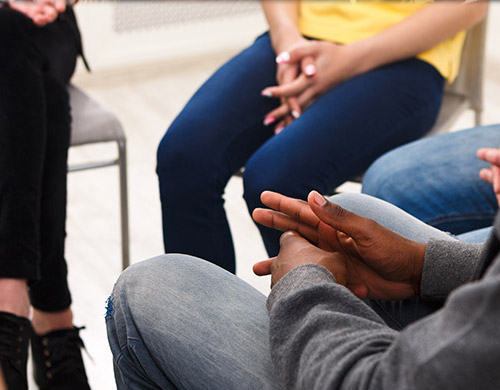Whenever you or a loved one has an alcohol or drug problem you may feel hopeless and struggle to know how to address it. However addiction is a treatable disease and by using proven and professional treatment methods, long-term recovery can be embraced.
Find out how integrated addiction treatment can help you or a loved one in beginning and maintaining recovery from substance dependence.
What is Addiction Rehab (Rehabilitation)?
Addiction ‘rehabilitation’ is a broad term that includes the therapeutic and medical treatments that are utilized to help individuals recover from their dependencies on illegal & legal substances. There is no ‘one size fits all’ approach to addiction rehab because it needs to be tailored to your requirements and may incorporate detox, inpatient and outpatient programs, and extended aftercare programs.

Facts & Statistics about Addiction in Newport Beach
Prevalence of Substance Use Disorder, by Drug Type
(IN THOUSANDS)
- 2,7578.5%Any Substance
- 2,0886.4%Alcohol
- 1,0683.3%Ilicit Drugs
- 2060.6%Pain Medication
Drug- and Alcohol-Induced Deaths by Age Group, California, 2016
- Alcohol-Induced
- Drug-Induced
- 18 to 250.5
- 9.6
- 26 to 354.3
- 13.9
- 36 to 6424.2
- 22.9
- 65+23.7
- 9.4
Drug Use, by Selected Type and Age Group California, 2015 to 2016
- 12 to 17
- 18 to 25
- 26+
- Marijuana*13.2%
- 34.0%
- 13.5%
- Misuse of Pain Medications3.5%
- 8.0%
- 4.3%
- Cocaine0.8%
- 7.2%
- 1.8%
- Heroin0%
- 0.4%
- 0.2%
What are the treatment options available in Newport Beach
Identifying and healing the primary causes behind your drug or alcohol use disorder can be achieved through an integrated treatment model. Through learning healthy coping strategies you can heal from substance abuse while addressing the main symptoms of addiction.

Private Residential Newport Beach
Residential addiction treatment programs allow you to stay on the same property that you are undergoing treatments in. One of the key benefits is access to 24-hour treatment and care. Leaving your home environment and entering a rehab facility can cushion you against triggers that impact your use of substances.
If you stay in a secure environment that is designed to be supportive, you have a higher chance of successfully completing your treatment program without relapse and its potential risks. Residential addiction treatment programs are useful for those with intense drug or alcohol dependencies, co-occurring illnesses or dual diagnosis.
You can start the initial steps to a sober life by enrolling in a residential program, but to get through the challenges of the early stages of addiction recovery, you must work at it constantly. After you finish your residential addiction treatment program your priority will be on transitioning to greater independence as you consider what you want from your new sober life.
Do You Need Help?
Start your recovery today.

Sober Living Programs
You will receive support and guidance from a sober living program to help you control your future plans more effectively. The programs often include:
- Guidance daily from a house manager
- Developing boundaries for consistent recovery behavior
- Nurturing important relationships with other people who are working through the same kinds of challenges
Outpatient Programs
Outpatient programs are less intensive to adjust to as you can maintain your work/life obligations and still undergo treatments, by coming to the rehab center at your own pace.
Outpatient programs will help you with:
- Education on misusing drugs
- Group therapy and individual counseling as vehicles for addiction recovery – You can expect to be enrolled in an outpatient program for a minimum of three months, and may continue treatment for longer than a year if required.
Detox Only Programs
Most patients need a medical detox to commence drug or alcohol rehab, because it tackles physical dependence on substances by ridding it from your system. During the detox phase you will develop withdrawal symptoms as your body starts to work independently of the substance it was dependent on.
By completing the detox stage you will move forward in your rehab journey, as you address the root causes that contributed to your addiction, helping you manage and avoid it in the early stages of recovery and beyond. It is likely that you will experience some cravings and withdrawal symptoms for a few weeks after your drug or alcohol detox program has ended. Relapse is less of a threat if you are equipped with the vital skills that will help you navigate your life in recovery.
Paying for Private Treatment
If you decide to pursue private treatment, you can contact your healthcare provider to make a claim or pay for treatment yourself. In most cases, insurance providers will allow you to claim against the costs of treatment, or at least some of the costs, including a drug or alcohol detox regime, rehab program, and post-treatment care.
Your provider along with their terms will determine how much cover you can claim for. We suggest that you find out how much cover you are entitled to before enrolling in a program. Click on our Verify Your Insurance page to learn about the cover you qualify for.
If you decide not to claim against your insurance, you will need to pay for your treatment program directly. Many treatment providers provide payment plans to clients who cannot afford the full cost upfront.
State Funded Programs
State-funded rehabilitation programs are useful for individuals who need to tackle a drug or alcohol dependency but have limited funds to pay privately for a program.
These programs work by using government funds from state budgets, Medicaid and federal government to provide addiction recovery with:
- Medical assessment and detox if required
- Addiction counseling and extended care
If you do not have a private healthcare policy or you do not have available funds, you may consider applying for a state-funded rehab program. You can expect to provide:

- Proof of your financial situation
- Proof of residence
- Your personal medical details regarding your drug or alcohol misuse
- Proof you are living in the US legally
More details about the application process can be found on https://www.grants.gov/
You can also identify direct details to contact your state agency here
State-funded addiction support available in Newport Beach:
Newport Beach Recovery Center
207 28th Street, Newport Beach, CA 92663
949-642-3697
https://newportbeachrecoverycenter.com/Sierra by the Sea
4138 Patrice Road, Newport Beach, CA 92663
949-675-9033
https://www.sierrabythesea.com/Nancy Clark and Associates Inc Alternative Sentencing
471 Old Newport Boulevard, Suite 101 , Newport Beach, CA 92663
949-631-0550
http://www.nancyclark.net/
Maintaining Addiction Recovery in Newport Beach
Maintaining your recovery can feel challenging when returning to normal life after leaving the treatment center. The rehab environment was controlled and safe, and you were given professional support. Once you leave rehab there may be new triggers that put your coping skills to the test. Clients who had severe dependencies find long term recovery more difficult when they leave rehab if they do not have a social support structure. Relapse can happen if you don’t have the appropriate aftercare or support to guide you into your new future.
The following meetings are available in Newport Beach:
Drug Rehab – Buena Park
Open and Discussion/Participation:
6700 Stanton Avenue #B, Buena Park, CA 90621
Sunday: 8:00 PM
https://www.na.org/CA - KEEP IT SIMPLE—OPEN PART
Online: 414 32nd St., Newport Beach, CA 92663
Monday: 8:15 PM
https://orangecountyca.info/AA - B Street Bonfire Meeting
Open: 298 B Street, Newport Beach, CA, 92658
Tuesday: 7:00 pm – 8:00 pm
https://alcoholicsanonymous.com/
Aftercare & Alumni Programs
Aftercare programs are an extension of rehab once you leave the rehab center. Because life doesn’t always happen the way we want it to, and 60% of individuals may relapse when finishing treatment, taking part in an aftercare program is needed support for you when life gets tough.
As you draw closer to the end of your treatment program, we will support you to establish an aftercare package that includes a range of services that are helpful to your recovery. After finishing your rehab treatment program you will be eligible to join an alumni community program so you can remain in contact with staff and others in recovery.
This useful network allows you access to our special events, including ongoing support and encouragement from other recovering members. This gives you an opportunity to reciprocate and offer encouragement to other members.
Support groups (fellowship meetings)
Support groups really are vital to long-term recovery as they focus on the need for social structures in recovery. Two of the best and most successful support groups are Alcoholics Anonymous and Narcotics Anonymous, which both utilize the 12-steps to support individuals in recovery via group meetings.

At support group meetings, you will share and listen to experiences. Many individuals in recovery attend nearby meetings to support them in the early and later stages of addiction recovery. Support groups provide them with the necessary tools tools to stay sober, and allow them to take responsibility for their actions to themselves and others.
Support for Families & Children Affected by Addiction
Some individuals living in an addicted household are impacted more than other individuals. Support is critical for all family members, not just the person struggling with the addiction.
Participating in family support groups can help you to cope better, as well as empower you to provide greater support to the person with the dependency. Family members will benefit from joining support groups such as:
- Parents of Addicted Loved Ones
- SMART Recovery Family & Friends
- NAMI Family Support Groups
- Al-Anon
- Families Anonymous
- Alateen
- Nar-Anon










